At Clean Energy Ventures, each season brings a new cohort of fellows who infuse our work with fresh ideas, sharp analysis, and an eagerness to explore the frontiers of climate innovation. This spring and summer, our fellows have rolled up their sleeves on everything from investment diligence and market research to building frameworks that help us scale our impact. We’re deeply grateful for their energy, expertise, and perspectives.
Rather than us telling you about their contributions, we’d like you to hear from them directly. Below, each fellow shares in their own words what they worked on, what they learned, and their reflections on working at the intersection of venture capital and climate tech.
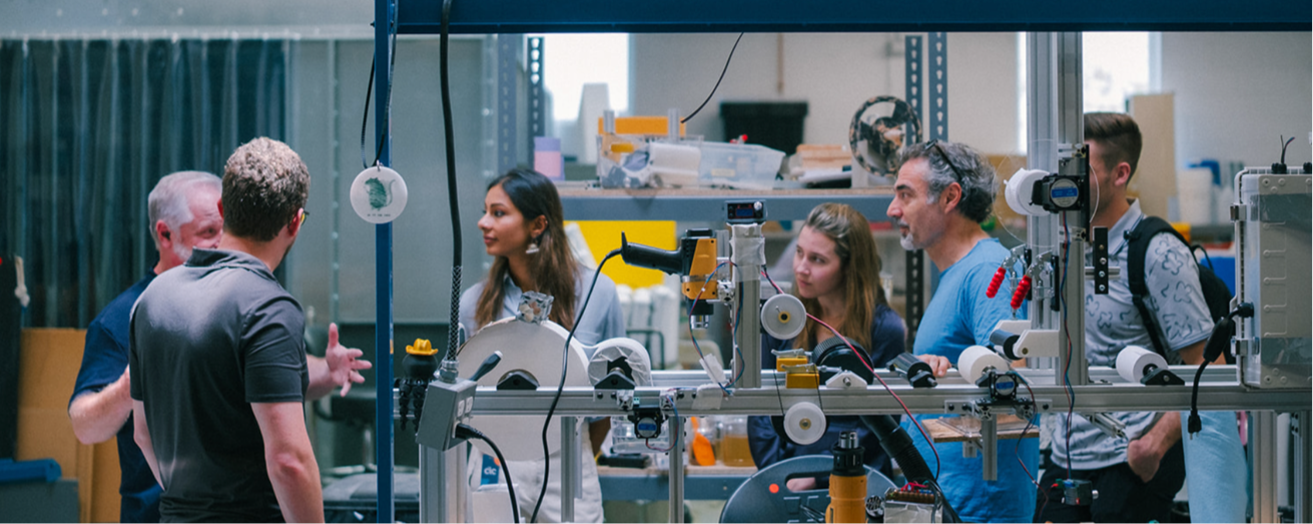
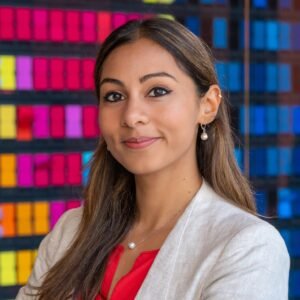 Simran Mohnani
Simran Mohnani
Stanford MBA Candidate
Growing up on the tiny island of Malta showed me firsthand the impact climate change can have on coastal communities. That experience ignited my mission to decarbonize hard-to-abate industries. When I found Clean Energy Ventures (CEV), a firm that invests in climate spinouts with both a financial and environmental mechanism to their thesis, it felt like fate. This summer, I had the chance to sit on the investor side of the table for the first time – a shift from years of building and scaling projects as an engineer and strategist. Venture capital asked me to zoom out, to notice patterns across dozens of pitches, and to hold both possibility and probability in the same frame.
From day one, I was treated as an expert in my own right. I was encouraged to lean on my industrial experience as a process engineer, Industry 4.0 consultant, and climatetech founder to shape investment theses — from domestic graphite to the techno-economics of green hydrogen. Over the summer I rotated through every aspect of the deal cycle: sourcing, due diligence, investment decision-making, portfolio support, and even supporting an LP strategy for CEV’s new growth equity vehicle. A key stand-out was supporting DG Matrix, a portfolio company designing the world’s first multi-port SSTs critical to large-scale electrification. I worked with their CFO to design a new pro-forma model as well as facilitating a bridge financing investment meeting. Another highlight was visiting Transaera’s new pilot facility after a fundraising milestone. I even joined their celebratory tradition of ‘whacking a hammer into a metal board with a 4% figure emblazoned on it’ – a tribute to how each milestone behind their next-gen HVAC system is cutting back on the 4% of global emissions from air conditioning.
What stood out most was CEV’s culture. The “magic sauce” is who they bring together: financially brilliant, engineering-savvy, but above all curious and kind. Whether it was being given a voice in weekly meetings, joining “Friday Fellows” sessions that fostered community, or learning directly from mentors like their Investment Director Lou in his weekly “Lou Lessons,” the internship felt like a true apprenticeship. It was an investment in us as much as we were investing our time in the firm.
I leave CEV with both gratitude and clarity. Gratitude for the founders who shared their visions, the partners and managers who sharpened my thinking, the mentors who let me shadow their decision-making, and the Fellows who became friends. And clarity that venture is one piece of a much bigger climate finance puzzle. My CEV fellowship validated that I have a role to play in building the financial bridges for the “missing middle” behind scaling up CAPEX-intensive climate hardware and sparked the interest in assembling diversified capital stacks to bridge this valley of death. I am deeply thankful to the CEV team for investing in us as Fellows and for making this summer one of the most formative of my MBA journey.
 Carly Grossman
Carly Grossman
MIT Sloan MBA Candidate
As a Summer Fellow with Clean Energy Ventures, I was primarily focused on a project evaluating risk coverage gaps in today’s financing ecosystem to unlock faster scale-up of first of a kind (“FOAK”) climate technologies. Emerging climate technology is critical to reaching net zero by 2050. The IEA predicts approximately half of emissions reductions needed by 2050 will come from technologies that are not yet commercialized. However, the valley of death – a financing gap between early-stage and infrastructure investment that inhibits commercialization of new technologies – persists. The goal of the risk transfer project I worked on was to better understand how risk transfer tools can be layered with other interventions to provide a suite of solutions to de-risk FOAK projects, with the ultimate goal of bringing new climate technologies down the cost curve more quickly.
I had an incredible crash course in emerging climate technology and the incentives of the players working across project development and execution – from project developers and startups, to EPCs, insurers, financiers both on the equity and debt side, offtakers, and more. I conducted interviews across these various stakeholders over the course of the summer. Understanding the interplay between key stakeholders is essential to the ability to move projects forward. This knowledge will be invaluable as I embark on my next career steps. CEV’s leadership and team provided incredible support and guidance throughout the project. In late July, CEV held a multi-day intensive to deep dive into learnings from stakeholder interviews and work to develop hypotheses around gaps and solutions. I think this is a small representation of how invested every CEV team member is in finding cross-sector, innovative solutions to support development of technologies that will reshape our climate future.
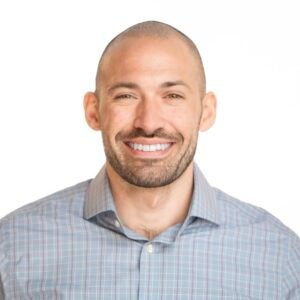 Austin Ritz
Austin Ritz
Harvard MBA Candidate
Coming from an operating background in software, my goal this summer was to explore climate tech venture capital as a potential career path. As a CEV Fellow, I got invaluable exposure to the entire venture investment process, working with a team that was incredibly welcoming and committed to hands-on learning across all aspects of VC operations.
The variety of projects I worked on gave me a solid understanding of climate tech investing quickly. Leading business model analysis and market sizing during active due diligence on an AI for mining startup was particularly rewarding. This work, plus scouting across C&I solar, green fuels, sustainable data centers, and more, taught me how the team evaluates opportunities, structures analyses, and focuses on the most critical deal criteria. I also got great exposure to the full investment lifecycle by supporting portfolio companies with market research and exit preparation, covering critical minerals and grid tech. Further, leading the AI for internal operations workstream gave me deep insights into how the firm operates behind the scenes.
What impressed me most was the exceptional caliber of the CEV and CEVG teams. The technical depth and sector expertise they brought to every discussion was remarkable. Their willingness to invest time educating fellows about industries, company dynamics, and investment principles made this an incredibly valuable learning experience. The collaborative environment created real mentorship and opportunities to contribute meaningfully from day one. I’d highly recommend this experience team to any student seeking serious exposure to climate tech investing.
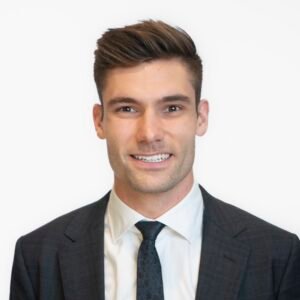 Taylor Skingle
Taylor Skingle
Harvard MBA Candidate
Working with CEV as a summer fellow was an incredible experience. One of the major highlights of the summer was working on a project that explored the use of risk transfer to improve funding for first-of-a-kind projects. It was fascinating to work on a problem that is so important for achieving rapid development of new technologies, but also incredibly challenging, requiring novel and creative solutions. I was responsible for modeling the financial impact of risk transfer schemes, which taught me new skills and about the intricacies of project finance in the context of capital-intensive startups. I learned about scaling and de-risking new technologies, the fundamental importance of good project execution, and the complexities of managing risk. I’m excited for CEV’s upcoming event at New York Climate Week, where we’ll present our findings from the summer.
Beyond the FOAK research, I was able to experience the many functions of venture investing. I attended four site visits, getting to see prototypes, manufacturing operations, testing facilities, and meeting the inspiring entrepreneurs driving innovation. I supported a portfolio company, working directly with the commercial team to develop their technoeconomic model and better understand the competitive landscape around their business. I met contacts throughout the clean tech industry, from fellow investors to industry experts, and saw hundreds of different ideas and technologies at various stages of development. I supported a diligence effort, going deep on a prospective company and considering all aspects of the business to assess the investment opportunity. All of these experiences gave me an unfiltered taste for venture capital and the day-to-day responsibilities of the job.
I’m very grateful for the opportunity to work with the CEV team. They are welcoming, kind, and set an incredibly high bar of professionalism. I will remember this summer fondly, especially getting to work with such a great group of people.
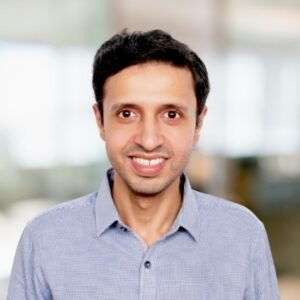 Shashwat Shivam
Shashwat Shivam
Harvard MBA Candidate
Coming into HBS, I knew I wanted to spend my MBA deeply immersed in climate-tech and energy transition. Having worked in software and digital infrastructure investing in climate, I was eager to expand my perspective and focus on deep-tech ventures tackling the biggest decarbonization challenges. That journey led me to Clean Energy Ventures (CEV) this past Spring, and I couldn’t have asked for a more rewarding experience.
From Day 1, I was struck by the depth of technical, operational, and investing expertise across the CEV team. Every conversation brought with it an impressive command of both first-principles science and venture-scale thinking. I was equally amazed by the breadth of sectors the fund actively engages with – ranging from advanced nuclear to industrial decarbonization to circular economy.
What stood out most was the culture of trust and enablement. The team brought interns into meaningful conversations and gave us room to stretch. Over the course of my internship, I had the chance to contribute across a range of workstreams – from evaluating early-stage opportunities to exploring the role of AI in value creation for climate-tech companies. One highlight was diving deep into the nuclear energy value chain and helping refine our perspective on where innovation and capital can move the needle in fission.
I’m incredibly grateful for the experience, and especially thankful to Amy, Ariel, and Wynston for their guidance, feedback, and trust throughout the internship. Their mentorship made this an incredibly rewarding experience.
As I continue focusing on the energy transition post-graduation, this experience reaffirmed my belief that deep decarbonization will require deep conviction, technical fluency, and a systems mindset – all of which I was grateful to see up close at CEV.
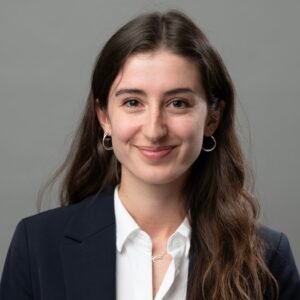 Yasmina O’Sullivan
Yasmina O’Sullivan
MIT MBA Candidate
Harvard MPP Candidate
It’s nearly impossible to work in the climate space and not know Clean Energy Ventures (CEV). As a member of the climate community before coming to graduate school in Boston, I was already familiar with CEV and thought I had a good sense of what to expect from my in-semester internship. The reality, however, far exceeded my expectations, especially in one key area: the team’s extraordinary depth and breadth of expertise.
I was blown away by the sheer number of industry experts at CEV, each with rich, impactful careers spanning nearly every corner of the decarbonization landscape. Equally impressive was the value they created. Decades of pattern recognition enable the team to rigorously evaluate prospective portfolio companies and, in turn, offer deeply enriching support to those they back. I aspire to build a similarly well-rounded foundation of expertise, anchored in the same unwavering passion for tackling climate change.
I had a front-row seat to this value creation while leading CEV’s thesis refresh on the nuclear fission space. Working alongside Lou Schick, CEV’s Director of Investments and a trained nuclear physicist, was a masterclass in the history and current dynamics of this complex and often misunderstood field. His expert input allowed me to hit the ground running, helping me apply a focused lens to identify the technologies with real promise and filter out the noise.
This exploratory sourcing work was complemented by hands-on support I provided to portfolio companies, particularly those working in sustainable aviation fuel (SAF). I gained firsthand insights from the coaching and strategic guidance CEV’s leaders provided to these companies and had the opportunity to contribute to their growth journeys as they navigated future funding rounds.
Beyond Lou, my experience at CEV was shaped by the generous mentorship and thoughtful counsel of Dave Miller, Wynston Reed, Ariel Hyre, Shanbor Gupta, and Amy Zhao. Each of them set a powerful example of what it means to deploy one’s talent, passion, and experience in service of the most urgent challenges of our time. Their commitment has left me newly inspired to continue building a career in climate, no matter the headwinds.
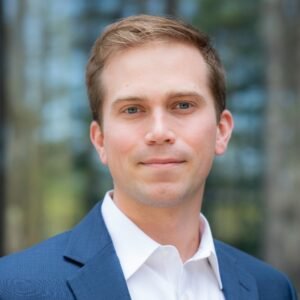 Mark Karlson
Mark Karlson
Dartmouth MBA
Interning at Clean Energy Ventures over the Fall and Spring was a very rewarding experience. From the outset, I was struck by how inclusive and collaborative the team is. Everyone at CEV brings deep conviction, intellectual rigor, and a genuine passion for tackling the climate crisis. Despite joining as an intern, I was treated as a valued contributor and encouraged to engage meaningfully with the team’s work.
A particular highlight of my time at CEV was the opportunity to get involved in active investment processes. I was able to support due diligence efforts across multiple deals, diving into analyses ranging from market landscapes to technical and economic model assessments. These hands-on experiences gave me valuable insights into how impactful early-stage investors think and operate.
I also had the chance to explore the operational backbone of a successful fund. I gained a greater appreciation for the infrastructure that enables venture firms to scale their impact. This exposure rounded out my understanding of the full VC value chain and helped solidify my interest in climate tech investing. I’m incredibly grateful to the CEV team for their support and mentorship over the course of my internship, and I look forward to staying in touch as I begin my post-MBA career!
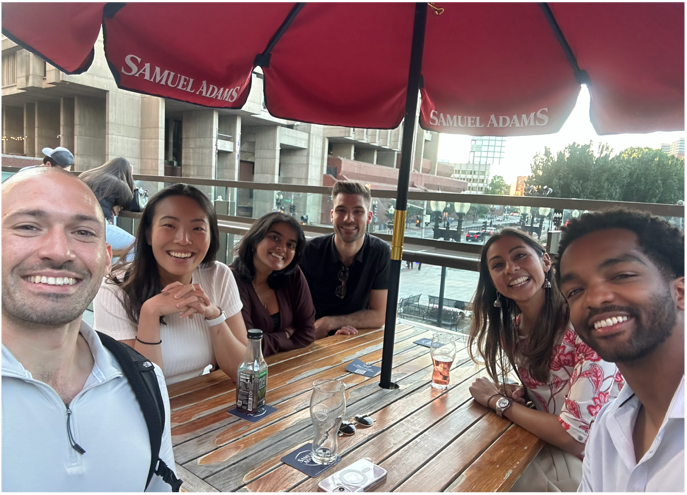
The post Celebrating our Spring & Summer 2025 Fellows appeared first on Clean Energy Ventures.














